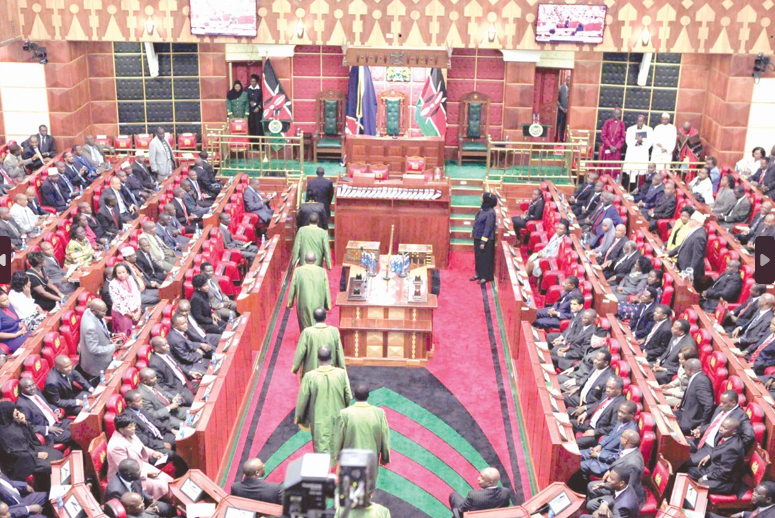Blaming IMF for Kenya’s tax burden is escapist

The Finance Bill 2024 has taken the obsession with taxation to ridiculous levels.
The mindset of Kenya’s economic managers seems to be about being very creative in designing new tax measures. Of course, they have a fine scapegoat – the International Monetary Fund (IMF).
This bill comes against the backdrop of an economy in the doldrums, one and a half years after President William Ruto took over with lofty promises. Businesses are badly struggling. Government pending bills continue piling up. There are no jobs for millions. There’s no cash anywhere.
In this worsening state of affairs, the fallback position of Ruto’s economic manager is to clutch at the straw man – the IMF.
This argument, however, is merely self-serving or escapist. Ruto assembled a galaxy of highly educated and highly paid Kenyans as his economic managers. Perplexingly, they seem to have ceded their entire agency to the IMF. Kenyans cannot understand how this team seems to be completely at sea on how to turn the economy around. There are no signs that anything is changing anytime soon!
This team must surely understand that the IMF’s sheer focus is not to grow economies – it is to maintain the stability of the global financial system – at all costs!
Just an illustration. The IMF is happy, eager even, to help Kenya sort out its Eurobond so that it does not default on its international obligations. But it has shown zero interest in the Sh700 billion in pending bills that the government owes its suppliers and on which it has hopelessly defaulted. Yeah, go figure!
Kenya has been here before. President Mwai Kibaki took over an economy devastated by 24 years of President Daniel Moi’s disastrous economic management. The economy had no infrastructure, no jobs, no credit, very high interest rates – name it.
By his third budget, Kibaki had stopped taking any donor money for budget support, and had almost doubled tax revenues. In the meantime, there was a huge expansion of economic activity across the board. Pending bills from ministries and agencies were almost unheard of.
Even more interesting was that he undertook massive social spending on free primary education, something anathema to the IMF, with not a whimper from them. Kibaki’s economic managers had it all figured out. His team got the equation of the egg and chicken correct, and had the courage to face off with the IMF. Ruto’s economic managers have their clothes inside out.
Kibaki’s economic managers focused on rejuvenating the economy to increase the amount of money to tax – more money with businesses and with people directly and automatically translates to the IMF mantra of broadening the tax base and boosting tax revenues.
Ruto’s economic managers seems to have rolled over and allowed the IMF to trample all over them. The IMF will gladly do so if they think you do not have a clue! Here’s what will happen. The government will keep getting shrinking tax revenues from a comatose economy. An increasingly desperate government will keep looking for even more ridiculous ways to squeeze water from stone, like the incomprehensible 2.5 annual tax on car value.
It is very worrying to hear the president proclaim that his goal is to increase tax revenues to GDP from 16 to 22 percent. Kibaki’s economic mantra was to match the Chinese economy’s sustained double digit growth. Again, mindset!. Even when Kibaki sought IMF loans, his economic managers ringfenced social programmes. The centrepiece of his government’s budgets was economic stimulus!
The country is yet to hear how Ruto’s expensive team intends to revive the economy. Make no mistake – the economy must get substantial and sustained stimulus to jumpstart it from its current comatose state.











